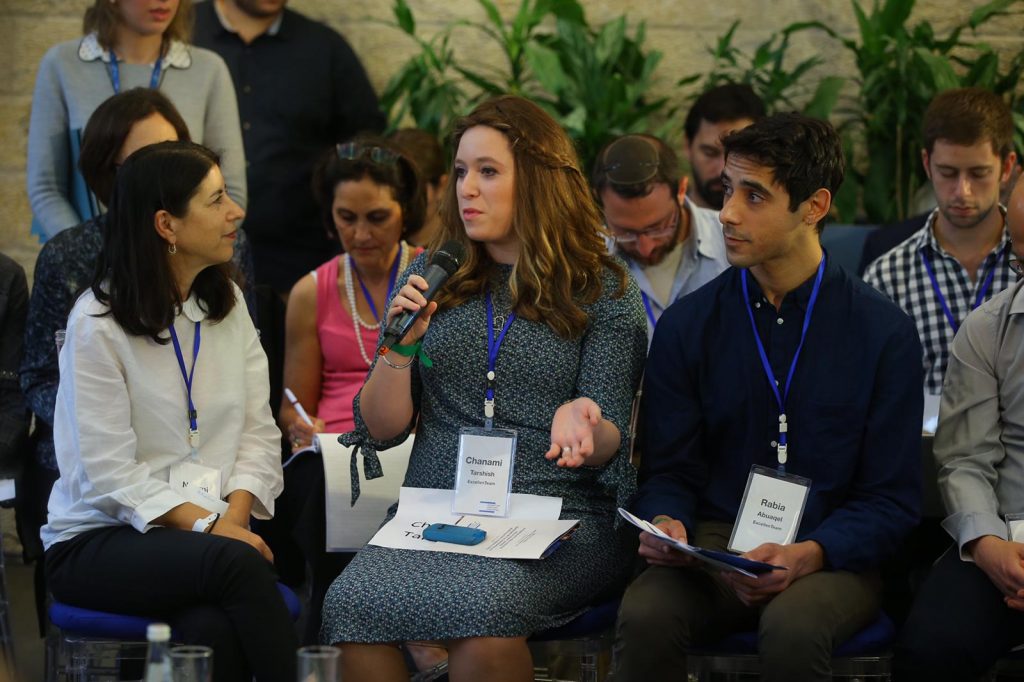Israel’s high-tech industry experienced promising growth over the course of 2018 with tech workers making up 8.7 percent of the national workforce, up 0.4 percent from 2017, according to a new report released this week by the Israel Innovation Authority (IIA). The rate of workers employed in the high-tech sector stood at 8 percent for about a decade previously.
By mid-2019, the number of workers in the industry stood at some 307,000, the report stated. Over the course of 2018, Israel’s high-tech scene added close to 19,000 salaried employees, a majority (14,000) in the software sub-sector, the largest in the industry.
Late last year, two separate reports, including one by the IIA and Start-Up Nation Central, showed a severe shortage of workers in the high-tech sector, estimated at some 15,000.
SEE ALSO: Israel’s Accelerating Brain Drain Should Be Ringing Alarm Bells, Says New Report
“Employment in the high-tech sector is characterized by high productivity and high wages, making it critical for Israel to increase the percentage of those employed in the high-tech sector out of the total number of employees throughout the economy,” the Israel Innovation Authority said this week.
This growth, the authority said, has been “facilitated by a variety of government initiatives to increase the number of highly skilled workers in the field… includ[ing] efforts by the Council for Higher Education to increase the number of students in STEM (Science, Technology, Engineering, Mathematics) studies and initiatives by the Israel Innovation Authority to diversify paths of entry into the high-tech industry.” These include Coding Bootcamp, which promotes advanced training in software and data science in non-academic settings, entrepreneurship tracks for the Arab sector, the ultra-Orthodox community, and women, all of whom are still severely under-represented in the high-tech industry.

The IIA said that additional programs are in the works and touted other efforts to boost the tech industry including support for pilots and demos in Israel, support for startups transitioning from R&D to the manufacturing stage, programs to increase growth funding for companies in Israel; and the promotion of favorable tax and regulatory environments.
The authority said it was also working to nurture future engines of growth in the high-tech industry, “investing approximately NIS 500 million annually in life sciences – a sector in which Israeli industry has made impressive scientific achievements but has yet to fulfill its full potential.”
Sign up for our free weekly newsletter
SubscribeA major program in this sector is expected to be launched later this year, the IIA promised.
Israeli Minister of Economy and Industry Eli Cohen said in a statement: “Increasing the number of employees in the high-tech market is an important accomplishment, considering the industry’s contribution to Israel’s economy and exports. This is even more significant given that the rise in the number of high-tech employees comes after years when there was no growth in the number of new workers in this sector. In a global economy characterized by technological innovation, Israel is a key player. This is evident in the number of startups in Israel and in the number of leading multinationals operating here. In order to continue to lead in this field, we must act to keep Israeli innovation and know-how in the country and provide skilled employees with the right platform to fill the many jobs offered in high-tech.”

Aharon Aharon, CEO of the Israel Innovation Authority, said: “The rate of workers employed in the high-tech sector has stood at 8 percent for about a decade, and for the first time we’ve seen a real positive trend in this figure. We are acting to significantly increase the rate of employment in high-tech and in innovative companies in every sector, so that a larger percentage of the country’s workforce can enjoy high paying, high-quality jobs.”
This summer, a report by the Shoresh Institution for Socioeconomic Research headed by Professor Dan Ben-David, a leading Israeli economist at Tel Aviv University, warned that Israel’s most educated population is leaving the country at a pace that should “ring alarm bells in all of the corridors that determine Israel’s national priorities.”
Ben-David argued that as Israel has become more integrated into the developed world, a rising share of its college graduates has been emigrating, particularly those with advanced degrees in exact sciences and engineering – who make up the foundation of Israel’s high-tech sector – physicians, and academic researchers
Related posts

Editors’ & Readers’ Choice: 10 Favorite NoCamels Articles

Forward Facing: What Does The Future Hold For Israeli High-Tech?

Impact Innovation: Israeli Startups That Could Shape Our Future




Facebook comments